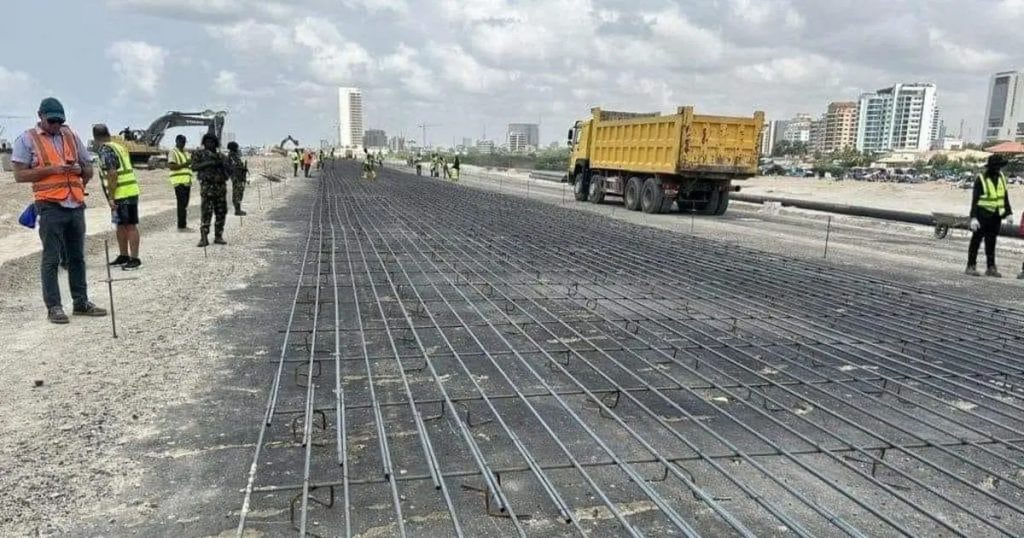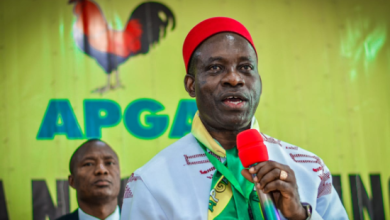Criticism Trails Umahi’s Premature Commissioning of 30km Lagos-Calabar Coastal Highway Segment
Minister David Umahi has drawn sharp criticism for presenting just 30 kilometers of the 750-kilometre Lagos-Calabar Highway as ready for commissioning, sparking outrage from NEFGAD.
The advocacy group condemned the move as deceptive and politically driven, warning it risks distorting public perception and setting a dangerous precedent for symbolic, uncompleted infrastructure celebrations.
The Minister of Works, Engr. David Umahi, is facing backlash after presenting a 30-kilometre portion of the Lagos-Calabar Coastal Highway as a completed and commission-worthy project. The move has triggered outrage from the Network for the Actualization of Social Growth and Viable Development (NEFGAD), a key public procurement advocacy group in Nigeria.
In a strongly worded statement signed by its Country Head, Mr. Akingunola Omoniyi, NEFGAD decried the action as misleading and politically motivated. The group emphasized that the Lagos-Calabar Coastal Highway is a massive 750-kilometre infrastructure project intended to connect major coastal regions and spur economic growth across southern Nigeria. Against this backdrop, presenting just a 30-kilometre stretch barely four per cent of the entire corridor as ready for commissioning was described as both “premature and deceptive.”

“The Lagos-Calabar Coastal Highway is a strategic infrastructure corridor envisioned to link major economic hubs along Nigeria’s coastline,” the statement read. “Attempting to commission only a small segment, when the bulk of the project remains far from completion, does not align with responsible infrastructure delivery. It raises concerns about the integrity of government communication and public accountability.”
NEFGAD further argued that such a move could set a dangerous precedent, encouraging the symbolic commissioning of uncompleted or barely functional projects across the country. The group warned that infrastructure projects should only be commissioned when they are either fully completed or when a major, usable phase of the project is ready to serve the public effectively.
“Presenting a fraction as though it represents the full scope of work not only distorts the public perception of progress but could erode citizens’ trust in governance,” NEFGAD warned. “Turning major infrastructure rollouts into photo ops for political gain does a disservice to both the public and the principles of transparency in project execution.”
Addressing the broader implications of such practices, NEFGAD cautioned that putting pressure on President Bola Tinubu to commission incomplete projects could be counterproductive. The group underscored that governance is a continuous process, and no single administration can or should feel compelled to complete all initiated projects within its tenure. Instead, government should prioritize continuity, quality, and effective delivery.
“President Tinubu himself has commissioned several projects initiated by his predecessors,” NEFGAD noted. “The emphasis should be on sustainability, proper execution, and public benefit not political expediency.”
Calling for a shift in approach, the group urged the Federal Government to focus on genuine project milestones and resist the temptation of premature declarations. NEFGAD stressed that Nigerians deserve full value for public spending, especially on mega-projects that involve significant financial investment and are critical to national development.
“The Ministry of Works must recommit to delivering results that meet global standards,” the statement urged. “Commissionings should reflect meaningful progress and tangible public benefit, not isolated fragments styled as finished work.”
The advocacy group concluded by appealing to President Tinubu to reinforce a culture of accountability and project transparency. They called on the Ministry of Works to ensure that any future commissioning are based on completed, fully functional infrastructure not partially executed segments given a political makeover.
With public infrastructure often at the center of national development goals, NEFGAD’s criticism throws the spotlight back on a recurring issue in Nigeria’s governance landscape the temptation to celebrate unfinished projects for political capital. Whether this latest controversy will push the Ministry of Works to review its approach remains to be seen, but public pressure for more responsible infrastructure reporting is clearly mounting.



